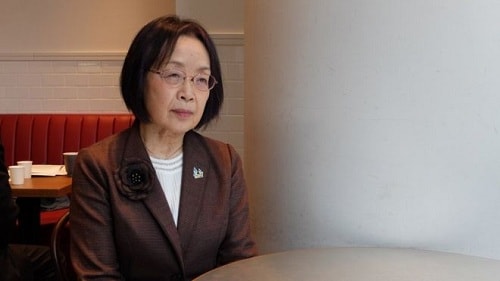Working to death in Japan
Japan is warning of a situation where young people work overtime leading to death from exhaustion.
 |
Ms. Michiyo Nishigaki. Photo: BBC |
Japan is one of the few countries with the longest working hours in the world, many young people have died from exhaustion, including Naoya, the only son of Mrs. Michiyo Nishigaki.
He loves computers and was extremely happy to be able to go straight to a large telecommunications company because it was a rare career opportunity in Japan's harsh labor market, according to BBC.
Mrs. Nishigaki was very proud of her son at that time. However, two years later, she noticed something unusual.
“He told me he was busy but fine,” she recalled. “The time he came home for his grandfather’s funeral, he fell asleep. ‘Mommy, let me sleep for a while, I can’t open my eyes. I’m sorry, let me sleep for a while.’”
Then she asked her son's colleagues and found out that he often worked overtime.
"He usually works until the last train (around 1am). If he misses the train, he sleeps at his desk," she said. "Sometimes he has to work overnight until 10pm the next day, 37 hours straight."
Two years later, Naoya died at the age of 27 from exhaustion. His death was just one of countless cases of what the Japanese call "karoshi" - death from overwork.
Working non-stop
Japan has a culture of working long hours. This phenomenon has been recorded since 1960. However, the recent sharp increase in deaths due to overwork has attracted public attention.
On Christmas 2015, Matsuri Takahashi, 24, an employee at the advertising company Dentsu, jumped to her death after suffering from severe sleep deprivation from working 100 hours of overtime a month.
 |
Matsuri Takahashi's mother cries in front of her daughter's portrait. Photo: Japan Times |
Makoto Iwahashi, an expert at Posse, an organization that runs a helpline for young workers, said the phenomenon was common in Japan, especially among those starting out in business. He said most calls to Posse were complaints about long working hours.
"Sadly, young workers feel they have no choice," he said. "If they don't quit, they have to work 100 more hours. If they quit, they don't have enough money to live."
The unstable job market makes the situation worse, Mr. Iwahashi said.
"In the 1960s and 1970s, karoshi existed, but the big difference was that, although workers had to work long hours, they were guaranteed lifetime employment. That's not the case now," he said.
Overtime culture
According to statistics released by Japan’s Ministry of Labor last year, there were about 150 cases of karoshi nationwide, including deaths from heart attacks, strokes and suicides. However, activists say the real number is at least 10 times higher.
Nearly 25% of Japanese companies have employees who work more than 80 hours of overtime a month without pay. Another 12% of employees work 100 hours of overtime a month. According to science, working more than 80 hours of overtime a month is the threshold for increasing the risk of death.
The Japanese government is under pressure to change this situation, but the challenge is whether it can change a decades-old culture where leaving work early can upset bosses or colleagues.
In February, the Japanese government launched a work-life balance campaign, urging employers to let employees leave work around 3 p.m. on the last Friday of each month. The event is called Premium Friday. The government is also urging businesses to give employees more vacation time.
Japanese workers have 20 days off per year, but 35% of workers do not take any leave.
Turn off the lights
The Toshima ward government in Tokyo had to turn off all office lights at 7 p.m. to force employees to go home.
“We wanted to do something useful,” said Hitoshi Ueno, the office manager. “Not just to reduce overtime, but to make people more efficient, more productive, and to enjoy their free time. We wanted to completely change the office environment.”
However, according to campaigners, these measures are only temporary and do not fundamentally address the core problem: that young workers are dying from working in overly stressful environments and for too long.
The only solution, activists say, is to limit overtime.
 |
Workers wait for a night train in Japan. Photo: BBC |
More measures needed
Earlier this year, the government proposed capping average monthly overtime hours at 60, but allowing businesses to allow employees to work 100 hours of overtime during "busy periods".
Critics say the government is prioritizing business and economic interests over workers' welfare.
"The Japanese people trust the government but they are being betrayed," Koji Morioka, a scholar who has studied karoshi for 30 years, accused.
Meanwhile, more and more young workers in Japan are dying from exhaustion, and support groups for the families of the deceased are taking on new members. Ms. Michiyo says Japan is killing workers who should be respected.
"Companies only care about short-term benefits," she said. "My son and other young workers do not hate work. They are capable and want to do a good job. Give young people the opportunity to not work overtime and not burn out, and the country will benefit from that."
According to VNE
| RELATED NEWS |
|---|


